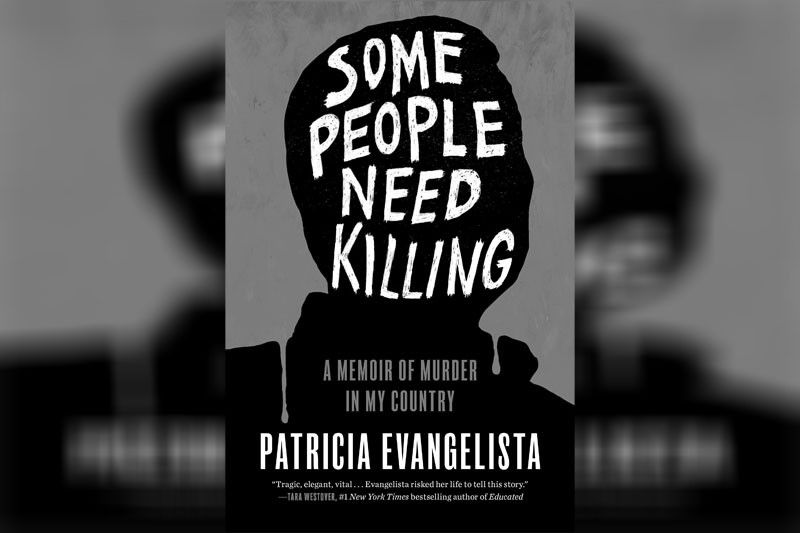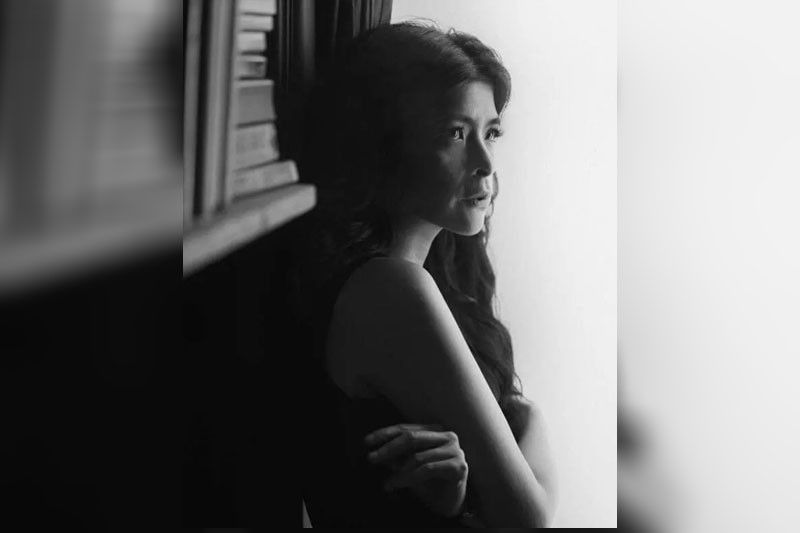Cebu Press Freedom Week 2024 Why Patricia Evangelista would turn down a screen adaptation of her book on the drug war

CEBU, Philippines — For someone whose surname means “bringer of good news” in Italian, Patricia Evangelista finds it ironic that her line of work requires her to follow one tragedy after another.
As a trauma journalist, Evangelista interviewed people connected to extrajudicial killings (EJK) during former President Rodrigo Duterte’s war on drugs: families of slain victims, witnesses, vigilantes, and police officers, including Col. Robert Domingo, who in 2017, was known for holding a “secret cell” in his Tondo, Manila precinct, where 12 drug suspects were detained behind a bookshelf in his office.
Her debut book, “Some People Need Killing,” published by Random House in 2023, opens with the story of Lady Love – a child who witnessed the murder of her parents by gunmen as their names were on a “kill list” for using drugs.
Evangelista’s writing brought humanity to the gory details of how Love-Love (her nickname) saw her parents die in ways that a technical news article can’t. Love-Love told Evangelista that she affectionately called her father “Dee” and her mother “Ma”, and why she doesn’t like to be called “Lady” except for her Dee.
Lady Love is just one of many that Evangelista was able to interview during the height of the EJKs. In the same week Love’s parents died, a five-year-old girl was killed by a bullet meant for her grandfather. He wasn’t able to attend her funeral for his safety.
“I saw many young girls in the first months of the war, and not all of them survived to tell their stories,” Evangelista wrote in the book’s first chapter.
Last April, Evangelista visited the University of the Philippines Cebu to promote “Some People Need Killing.” Introducing her to the 200-person audience, The FREEMAN columnist, lawyer Ian Vincent Manticajon, recalled the assassination of fellow lawyer Rex Fernandez three years prior.
“That incident may not be directly related to the drug killings, but it is undoubtedly a consequence of the same culture of violence that Patricia poignantly explores in her work,” he said.
“Patricia’s work offers us a mirror of the layered realities our country faces, revealing the nuanced interplay of sociopolitical factors that extended a simple binary of right and wrong. Her meticulous reporting exposed the complex web of accountability, power, human vulnerability, and disempowerment and defined our nation’s ongoing struggles,” he added.
Vivid storytelling
Evangelista’s approach is simple yet profound: she leaves out no detail when recounting her sources’ stories.
“Imagine your audience who wasn’t there,” she told attendees of the forum. “Your job is to walk them through the scene the way you saw it in your head. You just build around them. They smile, and they feel the ground under their feet.”
Throughout the 340-page book, with 82 additional pages of citations, readers can visualize every scene – the stories, facts, statistics, and Evangelista’s perspective as a journalist and Filipino. Her writing emphasizes storytelling beyond just presenting the facts.
Given her vivid narrative, the book could be an excellent basis for a film or TV adaptation. But Evangelista prefers to keep the stories within the pages.
“This is the sort of story that demands careful handling. The trust lies between myself and my sources, so I’m not comfortable giving it to someone else,” she responded when asked by The FREEMAN about a potential adaptation. “There are many talented people who can tell the story [of the war on drugs], but for this medium and story, it belongs to the written word.”
True crime is popular in film and TV, with series like Netflix’s “Monster” capitalizing on real-life cases such as Jeffrey Dahmer who is played by Evan Peters. Yet as the genre has become saturated, streamers and studios faced criticism for commodifying these tragedies.

For Evangelista, she is simply concerned of keeping her trust with her sources.
“The issue is really about consent. I have the greatest respect for people who tell stories, whether it’s documentaries or true crime. As long as they have full consent and they honor the story, I support truth-telling. But for this particular story, I am more comfortable with it being in the written word,” she said.
Hear their stories
For Evangelista, explaining how someone was killed also means knowing who they were before their death.
“A dead man isn’t just a dead man to me; I have to re-live his life,” she said. “I need to know what he ate, what he did, if he loved his mother, if he said ‘motherf—‘ or if he was a nice man.”
Her imagination is anchored in the facts she gathered. “Imagining is not to embellish. Gather all the facts possible to build this room. If you don’t ask how the walls are white, you cannot say the walls are white. There is no falsehood to the imagination. It just means you don’t simply say you walk into a room. Instead, we walked into a white room and it was full of people, and the ceiling was white and so were the walls.”
Writing someone’s experience is not easy. If her readers find a sentence of hers simple to read, it took weeks of her sweating on the details.
“I hope people saw what I saw. If people didn’t see it, it’s possible that I told the story wrong, but that’s how I try. I try to see people as someone wasn’t there with me and I want them to see it beside me,” she said.
When Evangelista interviews her sources, whether it’s an EJK victim or a perpetrator, she is there to simply understand where they are coming from. The book’s title is inspired by a vigilante who explained to her that participating in EJK doesn’t make him any less of a family man, nor someone God-fearing, and that he insisted he is a good person.
Recounting her interview during an episode of the podcast “Linya-Linya” last year, she explained, “Sabi niya sa akin, ‘Ma’am, mabuti naman akong tao, hindi naman ako masama. May mga tao lang na kailangan kang patayin. Nung narining ko, nag-translate kaagad: some people need killing.”
While the war on drugs is the book’s primary focus, Evangelista also delves into her life and career as a journalist that is rooted in her grandfather Mario Chanco, and being the first Filipino champion at a 2004 public speaking event in London.
The book also covers Philippine history, from Spanish, American, and Japanese colonization, to Martial Law under Ferdinand Marcos, Sr., the People Power Revolution, and Duterte'’ rise from Davao City mayor to president. She also featured Duterte supporters to illustrate why he garnered votes, using their frustration with former President Benigno Aquino III’s administration as context.
While acknowledging Aquino’s positive approach to foreign policy and economy by his supporters, Evangelista’s view was shaped by her experience covering the aftermath of 2013’s Super Typhoon Yolanda in Tacloban.
“I am after all a trauma reporter, and my view of Malacañang is from the ground, inside the miserable tent cities stinking of piss and s— where fathers wait for their drowned daughters to come home.’You are my bosses’, Aquino said of his people. If they were still alive, it should be enough,” she said on the third chapter.
She told UP Cebu instructor and event moderator Mayette Tabada that readers should not be dismissive of the people she interviewed, regardless of where they stand on the issue on the war of drugs and their stance towards Duterte’s controversial legacy.
“I hope that readers remember the stories of the people I featured in this book. Listen to them and where they come from, who they are and why they concluded to the decisions they did. These matter so much,” she said.
Evangelista also advised storytellers, including journalists, to handle their subjects with depth and care.
“A traumatic incident is not the fundamental of a human being. It’s one terrible moment in their lives, but there’s the before and there’s the after. In the same way that a killer is not only a killer, a Duterte voter is not just a Duterte voter, a Leni supporter is not just a Leni supporter,” she said.
“There are facets and elements of a human being and the best way to understand that is to ask them about everything. My favorite question to ask them is ‘And then, what happens next?’ or my other favorite: ‘Tell me a story.’”
- Latest
























